Carbon monoxide
This chemical standard operating procedure (SOP) and the associated Safety Data Sheet (SDS) are for our safety. Read and understand both documents. If this is a paper copy, check for updated versions on the IsoLab website.
Process
Carbon monoxide is used as an isotope reference gas for a mass spectrometer in our solid oxygen isotope analysis SOP.
Hazards - SDS
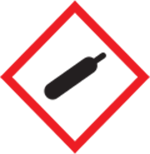
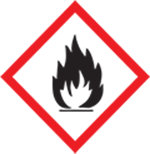
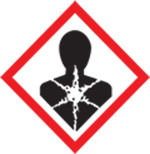
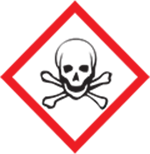
Contains gas under pressure; may explode if heated, Extremely flammable gas. May damage fertility or unborn child. Causes damage to organs. Toxic if inhaled.
Protection - SDS
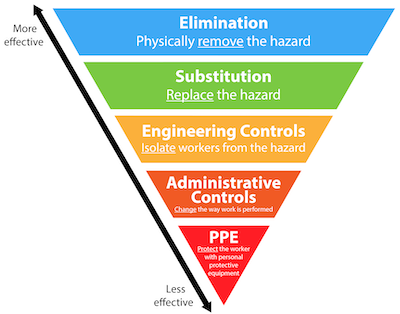
Engineering Controls
Before opening the CO cylinder, ensure the fume hood has proper air flow by checking the flow rate on the control panel and / or using a smoke match or wipe to visualize flow.
PHS - Before opening the CO cylinder, ensure the CO detectors are on and have working batteries.
Administrative Controls
PHS - No specific administrative controls required.
Personal Protective Equipment (PPE)
PHS - Since the compressed CO cylinder is stored in a fume hood.
Handling - SDS
Keep the valve tightly closed when not in use.
PHS - Decontamination - If removing the regulator for any purpose, keep it in the fume hood until the CO gas has had a chance to dissipate. Any tubing that is to be reused for another purpose or discarded, must first be flushed with an insert gas such as nitrogen, where the effluent is vented to a fume hood.
Storage - SDS
Carbon monoxide must be stored in the 302A fume hood. Use MyChem, the UW EH&S chemical inventory database, to find additional information on chemical storage.
Spills - SDS
Do not breath gas.
PHS - Exposure:
- Inhalation - Move into fresh air. For advice, call UW Employee Health Center (206.685.1026) or the Washington Poison Center (800.222.1222). For emergency help, call 911.
- Skin contact - Take off contaminated clothing and shoes immediately. Wash off with soap and plenty of water. For advice, call UW Employee Health Center (206.685.1026) or the Washington Poison Center (800.222.1222). For emergency help, call 911.
- Eye contact - Rinse thoroughly with plenty of water for at least 15 minutes. For advice, call UW Employee Health Center (206.685.1026) or the Washington Poison Center (800.222.1222). For emergency help, call 911.
If CO is released into the fume hood via leak, try to close the cylinder valve if safe to do so. Close the fume hood sash.
If CO has been released into the room, the CO detectors should be alarming. CO does not have an odor.
Immediately evacuate all personnel from danger area. Use self-contained breathing apparatus and protective clothing where needed. Shut off flow if without risk. Ventilate area or move cylinder to a well ventilated area. Toxic vapors may spread from spill. Before entering area, especially a confined area, check atmosphere with an appropriate device.
If the release of CO endangers anyone outside the lab, pull the nearest fire alarm and call 911.
If you need assistance or advice, use the IsoLab Emergency Contacts sheet.
Consult the EH&S Spill Poster and Exposure Poster
PHSDo not dispose of unused quantities. Return cylinder to supplier. Contact Praxair or Airgas and make arrangements for pickup.
Consult our generalized Chemical Waste Disposal SOP.

Training - PHS
Carbon monoxide is deemed a particularly hazardous substance - PHS by EH&S and you need approval before using it. Complete the list of requirements below before using this chemical.
Prerequisites
- You must have completed Managing Laboratory Chemicals in the last three years. Login to check.
- You also need to complete the EH&S compressed gas training.
- Read and understand the SDS for Carbon monoxide.
- Read, understand, and digitally sign this SOP.
- Contact your Principal Investigator (PI) AND the Chemical Hygiene Officer (CHO) indicating that you have completed all prerequisites and await approval.
